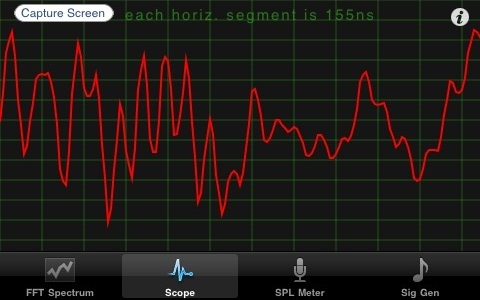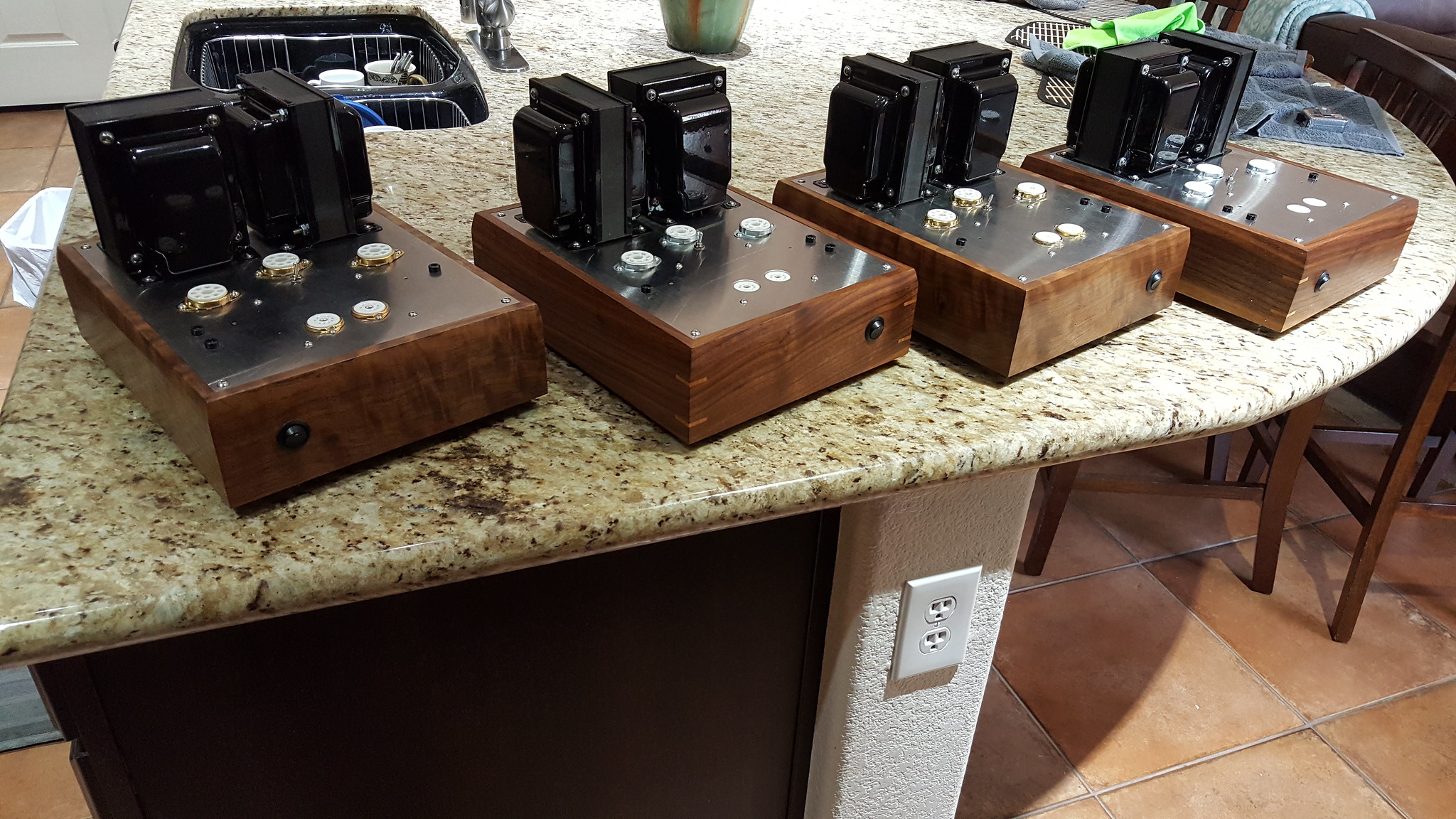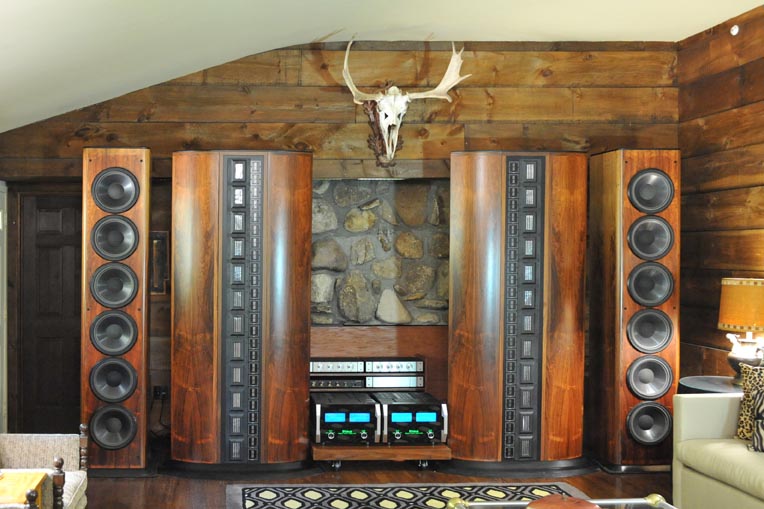
MerkinMuffley
-
Posts
52 -
Joined
-
Last visited
Content Type
Forums
Events
Gallery
Posts posted by MerkinMuffley
-
-
I like those legs!
-
You could try this:
Plug your TT into the Parasound PHONO IN
Take the "REC OUT" from the Parasound and and plug that into the Jolida's line input.
Use the volume control on the Jolida.
See if that works!
-
 1
1
-
-
"Excellent hearing" BTW, is a red herring. Hearing acuity is unrelated to how our memory works. The AB/X challenge isn't just a measure of hearing acuity, it is a process of memory manipulation and differentiation. A completely different process from mere hearing.
AB/X does prove one thing: Short term memory is lousy.
-
1 minute ago, ODS123 said:
So explain how we can reliably (ie., to satistically significant degree) distinguish b/w speakers using AB/X testing? ..And I don't see where in the website you reference this is specifically addressed.
Because speakers have very GROSS differences. Very dramatic difference. Amps electronics are far too subtle to be detected with working memory.
-
This scope photo is 1.7uS of music. In a ten second music clip, 5,880 more frames** like this will pass through your ears. Call that Sample X - the one you must identify as either A or B. Having heard X, you must now compare that to a previously heard 5,880 frames called Sample A, AND another 5,880 frames called Sample B. You must decide if X is equal to A or B.
Consider that Amp A might make some of the pointed peaks a little more rounded, or some of the taller peaks a little shorter, or some of the rounded peaks a little more pointed than Amp B. So now you have THREE massive data sets (5,880 "frames of sound") to juggle. Is the 5,880 frames worth of X more like A or more like B. Good luck. Not convinced? Add these "curve balls" to the mix. 1. You probably will NOT be able to play EXACTLY the same sample length for A, B, and then X. 2. Even breathing can change your hearing sensitivity. 3. Moving your head will dramatically change the stereo mix in your brain. All of that means this: every time you hear A, you are probably hearing a different A, and the same goes for B.
That's why no one can pass the AB/X test - because we don't have the brain that can do it. Meanwhile, every notable, successful amplifier designer, from Bob Carver to Nelson Pass to John Curl, to George Wright to Dennis Had firmly believe that amplifiers sound different.
**it's not really frames, just a continuous stream.
-
How good is our short term and working memory? See here:
https://en.wikipedia.org/wiki/Working_memory
The entire premise of AB/X is based on a working memory that can differentiate between two massive data sets. Impossible.
-
Is it implicit in the citizen compact that there is no ultimate right to privacy? I believe it would be trivial for Apple, or MS or Samsumg to build a uncrackable phone.
-
Our senses are very delicate with great resolution, but our "sense memory" is unreliable, and that's why ABX testing isn't very useful to determine differences in tastes, colors, smells, sounds, or tactility. We have no recorders in our brain to facilitate the comparison of a complex sound heard 30 seconds ago, to one we are hearing this moment. Our sense perceptions are not comparators.
If ABX testing was valid the audio industry would look a lot like the phone industry where a small number of standard platforms are judged the winners and the whole market becomes commodified around small variations of the winning platforms. Audio is nothing at all like that. The market thinks there are differences worth supporting, and the manufactures think there are differences worth investing their R&D.
-
 2
2
-
-
How do we know blind ABX testing is a valid tool?
-
You're lucky - you will save a lot of money on expensive amplifiers. Whether the differences are small, real, or imagined, some people spend a lot of money chasing the one that "sounds right."
-
 1
1
-
-
The cathode bypass is very large because it is shorting the full spectrum AC signal (20Hz - 20KHz) on the cathode and eliminating the degenerative feedback and raising the gain. If the cap is now 220uF there would be no predicted effect by adding say, .01uF of any type of cap, because ALL the HF are already being grounded by the original cap.
Bypassing electrolytics in a DC power supply is sometimes useful because it shunts HF periodic noise to ground. But there is no such noise on the cathode. It won't hurt, but it also won't help anything. It would be better to replace them with high quality new electrolytics if there is any chance they are old and possibly not perfect.
-
Finding the best amp for a person is about like finding the best meal - - recommendations from others seem to be pointless. e.g. "I just don't like fish." Just as everyone sees something different in art, they also hear something different in these audio systems. When it comes to telephones, a final consensus concluded that IOS and Android were the winners - the best choices. But for amps or speakers there is no consensus or consolidation that ever arrives. Funny.
-
Here's the infamous Stereophile challenge with Bob Carver. Speaks for itself: https://www.stereophile.com/content/carver-challenge
-
43 minutes ago, Carey said:
MerkinMuffley...are you referring to that you have never listened to ML amplifiers? In any case both speakers have there strengths and weaknesses. Very close battle brewing here between these foundation shakers

I never heard that an amplifier can make any speaker sound good. Yes, I've heard ML amps back in the 70s and 80s. None since then.
-
in the 1970s a popular audio magazine did a large blind listening test of amplifiers and the winner was the Phase 400. One of the main test speakers was Khorns. I had a few 400s and a 700b and never had any failure issues of any kind. I eventually preferred the sound of tube amps. In that 70s era, I don't recall anyone referring to them as disposable PA amps. But I also didn't know anyone that seriously listened to PA gear. Like so many things, individual experience varies..... Often wildly!
-
13 minutes ago, Carey said:
Must keep in mind that the Mark Levinsion 532h will make any speaker sound good.
never heard that before!
-
Aside from the technical errors he makes here and there, it was a fun read for sure. Good sound systems, like good meals, good cars, good art, and good novels, have no universal benchmark. Only taste and price really matter. He's a good writer.
-
-
Very interesting thread.
Was 'political talk radio' the first weaponized propaganda machine..... Way before the Internet and Facebook? Talk about fake news!
-
great reading!
-
Enjoyed Whale Wars when it aired it few years back. I sure wish they had more success though. Hard to fight "Japan, Inc."
-
 1
1
-
-
-
Hey thanks Jim....at some point I might have those Q's. But right now, I'm sort of just catching up on things - not even sure if I will do it. Might be a passing fancy.
-
Hello!
I'm here to graze - - on a friend's rec. I'm considering another stereo system after many years without one. Just looking at what's new, what's happening. Big site...tons of topics.
-
 1
1
-




$2000 set of Forte on the bay
in Alerts!
Posted
LOL Probably not the legs I would choose exactly, but I like that Atomic Age look (1950 - 1960).